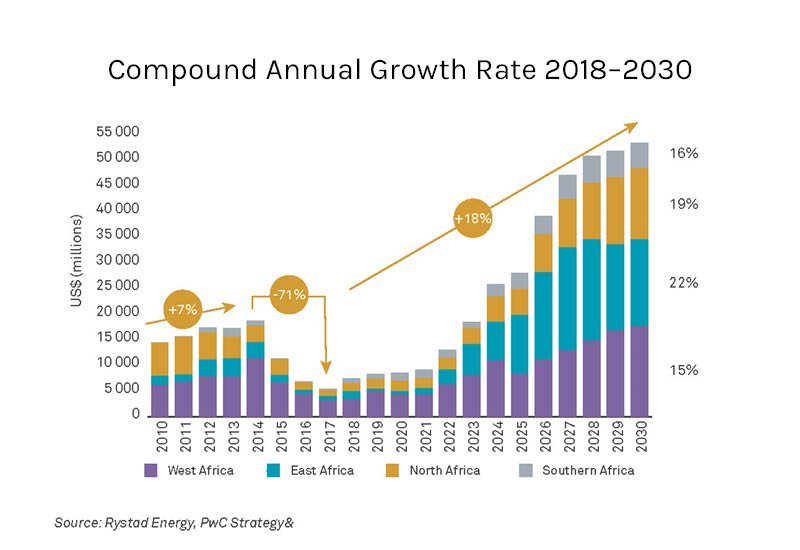In Summary
- Africa produces nearly 10 million barrels of oil daily, accounting for about 10% of global crude oil production.
- Nigeria is the largest oil producer on the continent, followed by Angola, Algeria, Libya, and Egypt. While Africa is a net exporter of crude oil, it is also a net importer of petroleum products.
- In Africa, oil production and its associated revenue vary significantly across countries, despite Nigeria being the largest producer, Libya, Congo, and Angola have a much higher reliance on oil revenue than Nigeria.
Deep Dive!!
Africa holds a significant position in the global energy landscape, and the continent is home to some of the world’s most resource-rich nations in terms of crude oil. In addition, the continent continues to play a vital role in stabilizing global oil markets, attracting foreign investment, and powering domestic economies through its hydrocarbon wealth.
From West Africa’s deepwater reserves to North Africa’s mature fields and Central Africa’s emerging basins, African oil producers are adapting to evolving global energy demands while tackling internal challenges. The continent’s top oil-producing nations are not only capitalizing on their rich hydrocarbon resources but are also investing in refining capacity, local content, and energy diversification.
Africa’s oil-producing countries continue to be central to the continent’s economic and geopolitical narratives. While production volumes fluctuate due to internal and external factors, these nations are striving to strike a balance between resource extraction and sustainable development. As the global energy landscape shifts, the top producers are increasingly focusing on energy transition strategies, refining capacity, and regional integration to remain competitive.
Here’s a look at the top 10 oil-producing countries in Africa in 2025, ranked from 10 to 1 based on output and strategic influence, offering a snapshot of their current production capacity, key developments, and regional impact.

10. Chad
With an average daily production of approximately 125,000 barrels per day (bpd), Chad’s oil sector, though modest in scale, plays a vital role in its economy, accounting for more than 60% of export revenue. Despite logistical challenges and limited refining capacity, new investments from Chinese and French companies are reviving production in the Doba Basin.
9. Ghana
Ghana’s offshore Jubilee and TEN fields continue to underpin its oil production. The government’s commitment to regulatory reforms and energy sector governance has encouraged further exploration. While not yet a top-tier producer, Ghana is rapidly emerging as a key West African oil hub. The country has an average daily production of approximately 135,000 bpd.
8. Gabon
Gabon’s oil industry, once in decline, has seen a resurgence due to offshore investments and improved fiscal incentives. It remains highly dependent on oil, which contributes to over 80% of exports. The country has also joined OPEC efforts to stabilize prices and boost revenues, and have an average daily production of 180,000 bpd.
7. South Sudan
Despite political instability, South Sudan continues to produce significant oil volumes, mainly through legacy infrastructure from Sudan. They have an average daily production of 170,000–190,000 bpd, and the country has attracted Chinese partnerships to rehabilitate aging fields and pipelines, keeping its oil sector afloat.
6. Equatorial Guinea
With an average daily production of approximately 200,000 bpd, Equatorial Guinea has maintained stable production levels through a combination of mature field management and new deep-water exploration. The government continues to position itself as a regional oil and gas hub, offering incentives for investors and LNG infrastructure development.
5. Republic of the Congo (Congo-Brazzaville)
With an average daily production of 275,000 bpd, Congo’s oil sector remains a dominant force in its economy. With new offshore drilling campaigns and increased foreign investment, particularly from Chinese and European firms, the country has expanded its output steadily in recent years.
4. Egypt
Egypt’s oil production is complemented by its booming natural gas industry, especially with the Zohr gas field. Oil output from the Gulf of Suez and the Western Desert continues to contribute significantly, and Egypt’s strategic position and refining capacity make it a key regional energy player. The north African giants have an average daily production of approximately 600,000 bpd.
3. Algeria
Algeria has maintained its position as one of Africa’s top oil producers, thanks to its vast reserves in the Sahara and continued investments by Sonatrach, the state oil firm. It also exports significant quantities of natural gas to Europe, enhancing its geopolitical leverage. The country has an average daily production of approximately 1.0 million bpd.
2. Angola
Angola has reclaimed its spot as one of Africa’s oil giants with consistent offshore production and deepwater projects. The country’s efforts to modernize its regulatory environment and reduce bureaucratic bottlenecks have attracted big players like TotalEnergies and Chevron. The average daily production of Angola is 1.1 million bpd.
1. Nigeria
With an average daily production of 1.5 million bpd, Nigeria remains Africa’s largest oil producer in 2025, despite facing infrastructure challenges, oil theft, and political volatility. The Niger Delta continues to be the core of production, with recent reforms such as the Petroleum Industry Act (PIA) helping to improve investment confidence. The Dangote Refinery is also expected to reduce import dependency and spur downstream sector growth.

